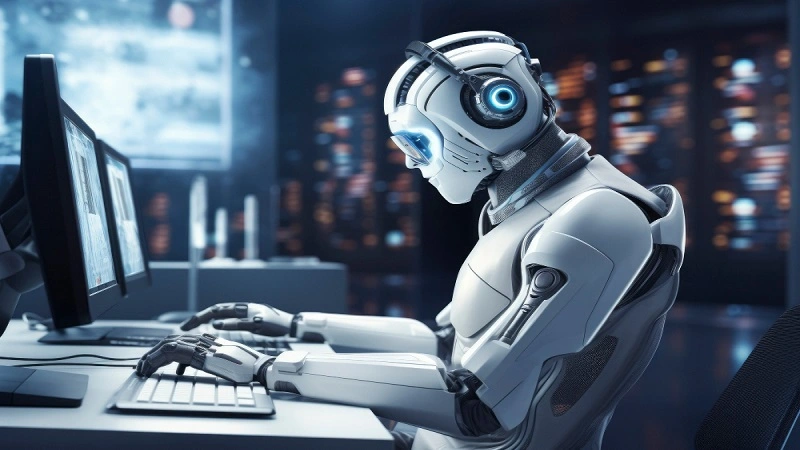In recent years, the integration of robotics into the workplace has become a transformative force, reshaping industries and redefining the nature of work. As automation technologies advance, the job landscape is evolving, giving rise to new opportunities and challenges. This article explores the role of robotics in the workplace and examines the jobs of the future that are emerging as a result.
1. The Rise of Robotics in the Workplace
Advancements in robotics, artificial intelligence (AI), and automation have led to the widespread adoption of robotic technologies across various industries. From manufacturing to healthcare, robots are increasingly playing a crucial role in streamlining processes, enhancing efficiency, and contributing to overall productivity.
2. Automation in Manufacturing:
One of the earliest and most significant impacts of robotics has been witnessed in manufacturing. Automated systems, including robotic arms and precision machinery, have revolutionized production lines, reducing human labor in repetitive and dangerous tasks. This shift has allowed human workers to focus on more complex and strategic aspects of production.
3. Collaborative Robots (Cobots):
The emergence of collaborative robots, or cobots, has further transformed the workplace. Cobots are designed to work alongside humans, enhancing cooperation and productivity. These robots are equipped with advanced sensors and safety features, allowing them to share workspace with human counterparts safely. Cobots are particularly valuable in industries such as logistics, warehousing, and assembly.
4. Jobs of the Future in a Robotic Workplace:
As automation becomes more prevalent, the job market is undergoing a profound transformation. While certain traditional roles may be automated, new jobs are emerging to support, operate, and manage robotic systems. The jobs of the future will require a blend of technical and interpersonal skills to navigate the evolving workplace.
5. Robotics Technicians and Engineers:
With the increasing deployment of robotic systems, the demand for skilled technicians and engineers is on the rise. These professionals will play a crucial role in the installation, maintenance, and troubleshooting of robotic equipment. Additionally, robotics engineers will be responsible for designing and developing the next generation of intelligent robotic systems.
6. Robot Programmers:
As robots become more sophisticated, the need for skilled programmers to develop and fine-tune their algorithms is growing. Robot programmers will be responsible for coding the instructions that guide robots in performing specific tasks, ensuring efficiency and adaptability.
7. AI and Machine Learning Specialists:
The integration of AI into robotic systems requires specialists in machine learning and artificial intelligence. These professionals will work on developing algorithms that enable robots to learn from their experiences, make decisions, and adapt to changing environments.
8. Human-Robot Interaction Specialists:
With the rise of cobots, there is an increasing demand for professionals who specialize in human-robot interaction. These specialists will focus on designing intuitive interfaces, ensuring safe collaboration between humans and robots, and addressing ethical considerations related to AI and robotics in the workplace.
Challenges and Considerations
While the integration of robotics in the workplace brings numerous benefits, it also poses challenges that must be addressed. Concerns related to job displacement, ethical considerations, and the need for upskilling the workforce are essential aspects to be taken into account.
- Job Displacement and Reskilling: As automation takes over certain tasks, there is a legitimate concern about job displacement. To mitigate this challenge, organizations and governments must invest in reskilling and upskilling programs to prepare the workforce for the jobs of the future.
- Ethical Considerations: The ethical implications of robotics in the workplace, including issues related to job surveillance, data privacy, and the potential misuse of AI, must be carefully considered. Establishing ethical guidelines and regulations is essential to ensure responsible deployment and use of robotic technologies.
- Adaptability and Flexibility: The rapid pace of technological advancements requires a workforce that is adaptable and flexible. Continuous learning and a willingness to embrace new technologies will be essential for individuals navigating the evolving job market.
Conclusion
Robotics in the workplace is ushering in a new era of opportunities and challenges. While automation is transforming traditional job roles, it is also creating a demand for a diverse set of skills and expertise. The jobs of the future will require a harmonious collaboration between humans and robots, emphasizing the importance of adaptability, creativity, and ethical considerations in the ever-changing workplace landscape. As we navigate this transformative period, it is crucial to approach the integration of robotics with a thoughtful and responsible mindset to ensure a positive and inclusive future for the workforce.
